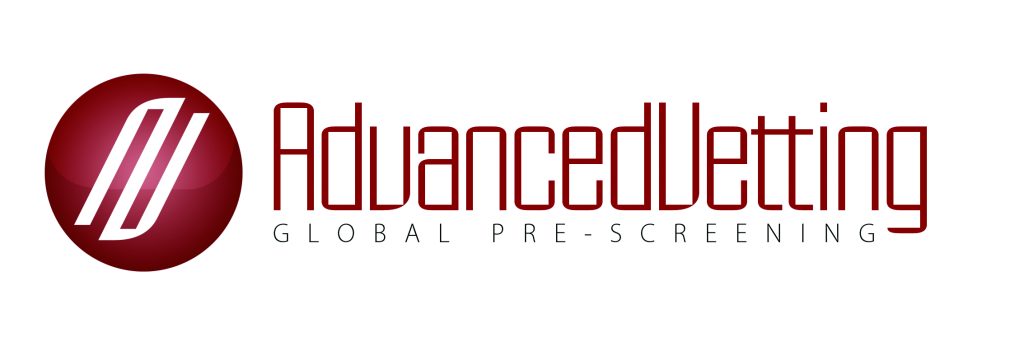A world of stringent security protocols lies behind the closed doors of government offices, defence organisations, and private firms handling sensitive information. At the heart of these safeguards are the UK’s security clearance levels – critical measures designed to ensure that only trusted individuals gain access to classified information. But what do these clearance levels mean, and who decides who gets them?
What Is Security Clearance?
Security clearance is a formal process that determines an individual’s eligibility to access classified information or restricted areas. This process is known as National Security Vetting (NSV) in the UK. It’s designed to protect national security by ensuring that only trustworthy individuals can access sensitive information or assets.
The Baseline Personnel Security Standard (BPSS)
Before we look at the higher levels of security clearance, it’s essential to understand the foundation: the Baseline Personnel Security Standard (BPSS). This is the minimum level of checks required for all civil servants, armed forces personnel, and government contractors. The BPSS involves:
- Identity verification
- Right to work in the UK check
- Criminal record check (unspent convictions only)
- Employment history check (past three years)
While not a formal security clearance, the BPSS underpins the national security vetting process and is often a prerequisite for higher clearance levels.
What Are the Main Security Clearance Levels in the UK?
The UK employs a tiered system of security clearance levels, each providing access to increasingly sensitive information. The main levels are:
- Counter Terrorist Check (CTC)
- Security Check (SC)
- Developed Vetting (DV)
Let’s explore each of these in detail.
Counter Terrorist Check (CTC)
The Counter Terrorist Check is the UK’s first formal security clearance level. It’s designed to prevent individuals who may have connections to terrorist activities from gaining access to sensitive locations or information.
Key points about CTC:
- It’s required for roles that involve proximity to public figures or access to information about terrorism
- The clearance process includes a criminal record check and security service records check
- CTC clearance is valid for up to 10 years, but clearance must be formally reviewed if there are significant changes in personal circumstances
Security Check (SC)
The Security Check (SC) is the UK’s most common form of security clearance. It provides substantial assurance about an individual’s trustworthiness, integrity, and reliability.
Important aspects of SC clearance:
- It allows long-term, frequent access to secret assets and occasional controlled access to top-secret assets
- The vetting process includes a detailed background check, credit check, and security questionnaire
- SC clearance is typically valid for 10 years for civilians and 7 years for contractors, but clearance may require review if circumstances change
The Enhanced Security Check (eSC) adds extra scrutiny to the standard SC clearance for roles needing greater access to sensitive information or facilities. It includes a deeper look into a person’s work and residential history and closer checks on their personal and professional connections.
Developed Vetting (DV)
Developed Vetting (DV) is the most comprehensive form of security clearance in the UK. It’s required for roles that involve substantial unsupervised access to top-secret assets or require an exceptional level of assurance.
Key features of DV clearance:
- It involves an extensive background investigation, including detailed interviews with the subject and their referees
- The process includes a comprehensive assessment of the individual’s character, personal circumstances, and financial situation
- DV clearance is typically reviewed every 7 years, but more frequent reviews may be necessary depending on the role
Certain highly sensitive roles, particularly within intelligence or security agencies, may require more rigorous vetting. This is known as Enhanced Developed Vetting (eDV). The specifics of eDV are not publicly disclosed, but it involves additional checks and a higher level of ongoing scrutiny.
How Does the UK Security Clearance Process Work?
The security clearance process in the UK is managed by United Kingdom Security Vetting (UKSV), a part of the Cabinet Office. The general steps involved are:
- The employing organisation determines the level of clearance required for a specific role.
- The candidate completes a detailed security questionnaire.
- UKSV conducts the necessary checks, which may include:
- Criminal record checks
- Credit checks
- Security service records checks
- Open source checks (social media, etc.)
- References and interviews
- Based on the results of the vetting process, a decision is made to grant or deny clearance.
- Clearance holders are subject to ongoing review and must report any significant changes in their circumstances.
What Factors Can Affect Security Clearance?
Several factors can influence the outcome of a security clearance application:
- Criminal history
- Financial situation (debt, bankruptcy)
- Drug or alcohol misuse
- Mental health issues
- Associations with individuals or groups of concern
- Time spent abroad
- Dual nationality or foreign ties
NOTE: These factors don’t automatically disqualify an individual from obtaining clearance. Each case is assessed on its own merits, considering the nature of the issue, its recency, and its relevance to the role in question.
Why Is Security Clearance Important for UK Businesses?
Having security-cleared personnel is essential for many UK businesses, particularly those in defence, government contracting, or critical infrastructure sectors.
Access to Contracts
Many government and defence contracts require personnel with appropriate security clearance.
Protection of Sensitive Information
Cleared individuals are trusted to handle classified information responsibly.
Compliance
Certain industries are legally required to employ security-cleared individuals in specific roles.
Competitive Advantage
Having cleared staff can give businesses an edge when bidding for sensitive projects.
How Can Advanced Vetting Assist with Security Clearance?
At Advanced Vetting, we understand the complexities of the UK security clearance process. While we don’t directly grant security clearances (as this is the role of UKSV), we can provide invaluable support in several ways:
- We can conduct thorough background checks to identify potential issues before the formal clearance process begins.
- Our experts can advise on the clearance process, helping employers and candidates navigate the complexities of security vetting.
- We offer services to help organisations maintain the integrity of their cleared workforce through periodic checks and updates.
- We can conduct comprehensive international background checks for roles involving international travel or liaising with foreign entities.
The Importance of Understanding UK Security Clearance
Understanding the levels and processes of UK security clearance is crucial for individuals and organisations. Whether you’re seeking a security-cleared role, managing cleared personnel, or simply interested in the mechanisms that protect our national security, knowledge of these processes is invaluable.
Contact Advanced Vetting Today
For more information on how Advanced Vetting can support your organisation’s security vetting needs, please don’t hesitate to contact our team of experts. We’re here to help you navigate the complex world of security clearance and ensure that your personnel vetting processes are comprehensive, compliant, and effective.






